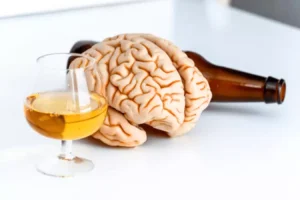Oct 04, 2023

Once a patient reaches a certain point in their progress, their medical team can then begin to ease up on the use of medications to treat their symptoms. First, when your body begins to experience intense withdrawal symptoms, they may be so unbearable that you could be tempted to give up and seek out drugs or alcohol to stop them. Detoxing at home can be dangerous and even life-threatening, especially https://ecosoberhouse.com/ for substances like alcohol, opioids, or benzodiazepines. Medically supervised detox ensures safety and reduces withdrawal symptoms. Seeking help before addiction or mental illness worsens improves long-term recovery success. Treatment works at any stage of substance use or mental health struggles.
At Ashley Addiction Treatment, we recognize the need to dispel these myths so that individuals can receive the understanding and support they need on their path to recovery. Various factors can lead to addiction, including genetics, environment, trauma, mental health disorders, and early exposure to substances. Recognizing the complex nature of addiction is essential in addressing it effectively and with empathy. Myths and misconceptions about addiction and recovery can have a bad effect on treatment and an individual’s success in their recovery journey. These can come from a lack of knowledge in the medical world, social shame, and stigma. By breaking these myths and confronting the misconceptions, we can create a kinder and more supportive environment for those needing help.
No one is immune, and factors like genetics, environment, and trauma can increase vulnerability. Recognizing this helps reduce stigma and encourages understanding. Remember, addiction to drugs or alcohol happens when your brain becomes dependent on those chemicals to function.

Early intervention can (and does!) save lives and stop further damage. Because of this, it’s tough to overcome through sheer determination alone. But addiction changes how your brain’s reward and decision-making systems work. Addiction is a disease, not a reflection of poor choices or a lack of self-discipline. In doing so, we can create a space where recovery feels accessible and hopeful.

Its impact is profound, influencing lives on personal, communal, and systemic levels. Yet, the conversation about addiction is often clouded by myths and misconceptions. Understanding and addressing these myths is crucial for providing effective treatment and fostering compassion.

The reality is that dual diagnoses (poly-diagnosis) are the rule, not the exception. Also, the early initiation of substance use is a significant risk factor for the subsequent development of SUD and may also elevate the risks of mental health disorders. Stigma often paints addiction as a sign of weakness or immorality. However, addiction is a complex interplay of genetic, biological, psychological, and environmental factors. Recognizing it as a health issue rather than a moral failing allows for more empathy, effective treatment, and reduced shame.

It does not mean failure, but rather serves as an opportunity to adjust and grow in the treatment plan. Healthcare professionals must identify potential triggers and underlying factors that can myths about addiction and recovery contribute to relapse. This enables them to tailor the treatment approach to suit the person’s individual needs.

Drug use and experimentation among teens often is ignored by many—even parents, who then may be unaware that any use places adolescent brains in jeopardy. So, it needs evidence-based treatments made for individual needs. Additionally, prescription drugs can have damaging effects if used incorrectly or without expert advice. They can cause physical and mental health problems, addiction, overdose, and even death.
While it’s what is alcoholism true that treatment programs have guidelines and rules you’re expected to adhere to, there is also a lot of freedom in our programs. At Gateway, we don’t offer a one-size-fits-all approach to treatment because we believe that each person is an individual who needs individual attention. When someone refers to quitting drugs or alcohol “cold turkey,” they mean they plan to quit abruptly without the help of medication or assistance from experienced medical personnel. Someone who chooses to address their addiction this way typically attempts to stop using drugs or alcohol at home by themselves. At Gateway Foundation, we prefer to use the term “medically supervised withdrawal.” “Detox” implies that once the substance you are addicted to leaves your body, all will be well.
It’s a myth that addiction only affects those with a specific physical appearance. In truth, addiction can affect any individual, regardless of age, race, gender, or body type. Stereotyping based on physical features only reinforces stigmas, and prevents individuals from seeking help. Dual diagnosis is when someone has a substance use disorder and a mental health disorder.